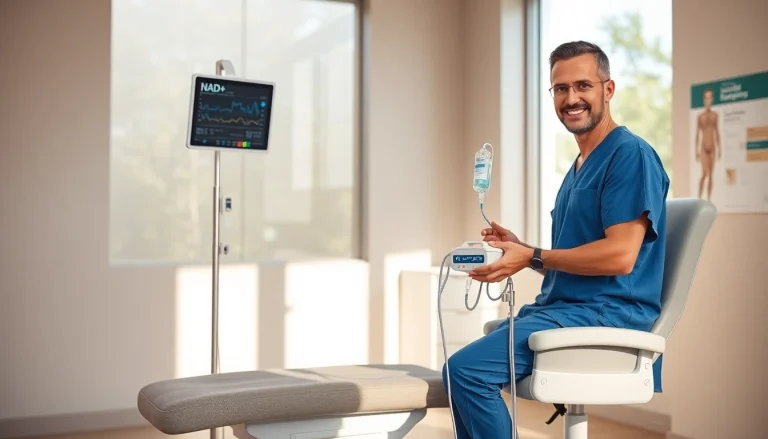Understanding the VDAP Program
What is the VDAP Program?
The Voluntary Disciplinary Alternative Program (VDAP) is a rehabilitation initiative aimed at nurses in the State of Alabama. Enacted by the Alabama legislature, this program is designed to offer nurses who are facing disciplinary action due to substance abuse or mental health issues a chance to seek treatment and rehabilitation, thereby allowing them to maintain their licensing and continue their careers in nursing. The program focuses on early intervention and support, encouraging participants to acknowledge their struggles and seek help before facing more severe penalties or consequences related to their professional practice.
The VDAP Program serves to create a pathway for recovery while ensuring the safety of patients and the integrity of the nursing profession. This voluntary entry into the program signifies a commitment to change, reflecting the core principle that many nurses possess the desire to return to their responsibilities free from the grip of addiction or mental health challenges.
Key Objectives of the VDAP Program
The main objectives of the VDAP Program encompass several key areas aimed at supporting nurses:
- Early Identification: Identifying nurses who may be suffering from substance abuse or mental health issues before their problems escalate to disciplinary actions.
- Intervention: Providing timely interventions that facilitate access to treatment options, thereby addressing the root causes of these issues.
- Support and Rehabilitation: Offering a structured support system that includes counseling, therapy, and recovery programs tailored to each participant’s needs.
- Monitoring and Accountability: Ensuring ongoing monitoring of participants to uphold accountability while they recover, which ultimately supports their return to practice safely.
- Retention of Licensure: Helping participants to maintain their nursing licensure upon successful completion of the program, thus allowing them to reintegrate into the workforce.
Who is Eligible for the VDAP Program?
Eligibility for the VDAP Program is specifically targeted toward nurses who are licensed in Alabama and are facing disciplinary action or are at risk of such action due to substance use or mental health challenges. To qualify, participants must:
- Demonstrate a willingness to seek help and enter a treatment program voluntarily.
- Admit to problems associated with substance use or mental health that may impact their practice.
- Agree to comply with monitoring and treatment protocols established by the VDAP.
It is critical to note that while the program aims to help those in need, not all applications for the VDAP Program will be accepted. Factors such as the severity of the issues, previous disciplinary records, and the ability to comply with the program’s requirements can influence eligibility decisions.
Challenges Faced by Nurses in the VDAP Program
Common Misconceptions About the VDAP Program
Despite its supportive framework, the VDAP Program is often surrounded by misconceptions that can deter nurses from seeking help:
- It’s a Punitive Measure: Many nurses perceive the VDAP Program as a punitive step rather than a supportive initiative. This misconception can lead to fear of repercussions that outweigh the actual benefits of rehabilitation.
- Lack of Confidentiality: There are concerns regarding privacy and confidentiality, with some nurses fearing that entering the program could negatively impact their career in the long term.
- Success Rates Are Low: Some believe that the success rates of the VDAP are not favorable, influencing them to avoid participation despite a genuine need for help.
- Perceived Inflexibility: The structure of the program can be seen as rigid, causing anxiety around the strict adherence to protocols as part of the recovery process.
Dispelling these misconceptions is crucial to encourage nurses who may be at risk of substance use or mental health issues to seek assistance and enter the VDAP.
Personal Experiences: Stories from Participants
Listening to the experiences of those who have gone through the VDAP Program can provide valuable insights. Many participants describe their journeys with vulnerability and honesty, often reflecting on the fear and stigma they faced:
One nurse recounted, “I was at my lowest point. I thought entering the VDAP Program would end my career. Instead, it gave me a lifeline. I found support among peers who understood my struggles. Completing the program allowed me not only to regain my license but also to embrace a future focused on recovery.”
Another individual highlighted the importance of community, stating, “The program helped me feel less isolated. I learned I wasn’t alone, and that made all the difference.” Such narratives showcase that while the fight against addiction and mental health challenges can be daunting, the support provided through the VDAP Program is a beacon of hope.
Legal Implications of Entering the VDAP Program
Participation in the VDAP Program carries specific legal implications that nurses should thoroughly understand before entering:
- Voluntary Admission: Entering the program is a voluntary decision, but it bears consequences for nurses. This admission can provide an opportunity to mitigate disciplinary actions but may also lead to legal scrutiny regarding disclosures made during the process.
- Confidentiality Concerns: Legal protections around confidentiality exist; however, there can be circumstances where participation discussions may be disclosed in legal proceedings, which can affect a nurse’s future.
- Impact on Licensure: If a nurse fails to comply with the program requirements, it may lead to further disciplinary actions, including revocation of their nursing license.
Navigating these legal waters can be complex, and it’s advisable to engage with legal counsel specialized in nursing law before entering the VDAP Program.
Evaluating the Effectiveness of the VDAP Program
Success Rates of the VDAP Program
The success rates of the VDAP Program are a crucial measure of its effectiveness. Numerous studies indicate that programs aimed at substance abuse recovery can lead to positive outcomes, including:
- Improved recovery rates among participants.
- Reintegration into the workforce as licensed professionals.
- Enhanced overall health and wellbeing of nurses participating in the program.
According to recent evaluations, success metrics show that a significant portion of participating nurses completes the program successfully, reaffirming the notion that with the right support, recovery is achievable. Additionally, alumni of the program often express a renewed commitment to their professions post-recovery, contributing positively to healthcare environments.
Measures of Rehabilitation and Support
The rehabilitation support provided through the VDAP Program is multifaceted, encompassing several components that work together to promote effective recovery:
- Initial Assessment: Participants undergo a comprehensive assessment to tailor treatment plans that address their specific needs.
- Therapeutic Support: Access to mental health professionals, counseling, and peer support groups is available throughout the duration of the program.
- Educational Resources: Participants receive education about addiction, mental health, and coping strategies to manage triggers in everyday life.
- Aftercare Programs: Post-completion support and aftercare programs are crucial to prevent relapse and ensure ongoing success.
These measures create a robust framework for recovery, demonstrating that sustained support can lead to meaningful, long-lasting changes in participants’ lives.
Comparative Analysis with Other Programs
When evaluating the VDAP Program, it can be helpful to compare its structure and effectiveness with similar programs available for healthcare professionals. Programs often share common goals of recovery and rehabilitation, yet they may differ in their approaches:
- Completion Rates: Some programs may boast higher completion rates due to less stringent monitoring or different treatment approaches.
- Cost to Participants: The financial implications of entering a program can vary. Some programs may require out-of-pocket expenses that deter participants.
- Legal Protections: The extent to which a program can provide legal protections for participants facing potential job loss or license revocation may differentiate its appeal.
Understanding these distinctions can help nurses to make informed decisions about engaging with the VDAP Program versus other available options. Ultimately, the choice will vary based on individual circumstances and needs.
Best Practices for Engaging with the VDAP Program
Steps to Prepare Before Joining the VDAP Program
For nurses considering entering the VDAP Program, preparation is critical to ensure a smooth transition into the program. Here are some steps that can be beneficial:
- Self-Assessment: Honest self-reflection on the extent of the issue and the need for help is the first step toward recovery.
- Gather Information: Research the VDAP Program thoroughly to understand its requirements, expectations, and potential outcomes.
- Seek Professional Guidance: Consider consulting with a mental health professional or legal counsel who can provide insights and help navigate the complexities.
- Plan for Time Commitment: Be prepared for the time and effort needed to engage actively with the program, including therapy sessions and monitoring.
Preparation lays the groundwork for a successful experience in the VDAP Program, ultimately leading to higher chances of successful rehabilitation and professional reintegration.
Resources and Support for Nurses
Support resources are vital for nurses participating in the VDAP Program. Some key resources include:
- Peer Support Groups: Programs that facilitate connections with other professionals facing similar challenges.
- Professional Counseling Services: Access to licensed therapists specializing in addiction recovery and mental health.
- Educational Workshops: Continuous learning opportunities surrounding addiction, mental health, and coping strategies.
- Online Forums and Communities: Safe spaces where nurses can share experiences and gain encouragement from peers.
These resources enhance the overall experience and provide crucial assistance during recovery, offering a sense of community and understanding.
Legal Advice: Protecting Your Rights in the VDAP Program
Legal considerations play a substantial role in the decision to join the VDAP Program. Engaging with a legal professional who understands nursing law is essential. Here are some legal aspects to consider:
- Understanding Your Rights: It’s vital to have clarity on what protections the VDAP offers and how these protections might apply in your situation.
- Disclosure Implications: Be informed about the nature of disclosures that may be required during the program and how they can affect licensing.
- Legal Representation: If complications arise, having legal representation can safeguard against potential liabilities and assist with navigating any disputes.
Navigating the legal landscape associated with the VDAP Program can pose challenges, making professional legal insights invaluable.
Future of the VDAP Program in Alabama
Recent Changes and Developments in the VDAP Program
The VDAP Program is continuously evolving to better support nurses and address emerging challenges in the field. Recent updates may include:
- Policy Revisions: Adjustments to eligibility criteria and program requirements based on feedback from participants and industry professionals.
- Increased Funding: Efforts to secure more funding to help cover treatment costs and support services offered through the program.
- Enhanced Outreach: Initiatives aimed at increasing awareness among at-risk nurses about the existence and benefits of the VDAP Program.
By staying responsive to the needs of nurses, the VDAP Program aims to make rehabilitation accessible while ensuring public safety in the nursing profession.
Advocacy Efforts for Program Revisions
Various advocacy groups push for changes to improve the VDAP Program. These efforts highlight the importance of ensuring that the program is not only effective but also fair and compassionate:
- Lobbying for Legislative Changes: Advocates work to influence lawmakers to refine existing statutes governing the VDAP Program, improving protections for participants.
- Raising Awareness: Focused campaigns inform healthcare professionals of the program’s benefits, reducing stigma around seeking help.
- Research Initiatives: Support for ongoing research to measure the program’s effectiveness and suggest evidence-based improvements.
Such advocacy efforts pave the way for enhancements that align the VDAP Program with the actual challenges faced by nursing professionals.
Long-Term Impact on the Nursing Profession
The long-term impact of the VDAP Program on the nursing profession is yet to be fully realized, but several anticipated benefits could include:
- Reduction in Stigma: A successful VDAP Program can contribute to diminishing the stigma surrounding substance use and mental health issues in healthcare settings.
- Increased Support Systems: As awareness of the VDAP Program grows, more robust support systems will likely develop within the nursing community, potentially leading to better outcomes for all practitioners.
- Improved Patient Safety: By helping nurses recover and return to work equipped with coping strategies, the program may enhance patient care standards.
Ultimately, the VDAP Program has the potential to transform not only individual outcomes but also the broader nursing landscape in Alabama, fostering a culture of support, understanding, and recovery.








